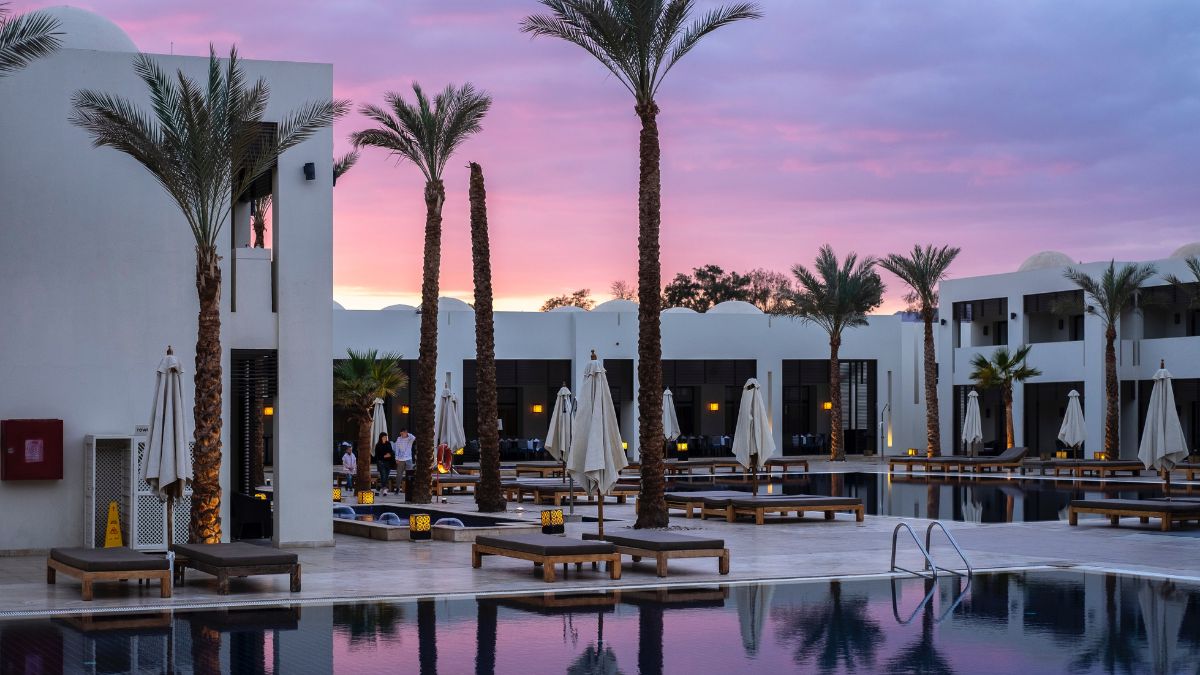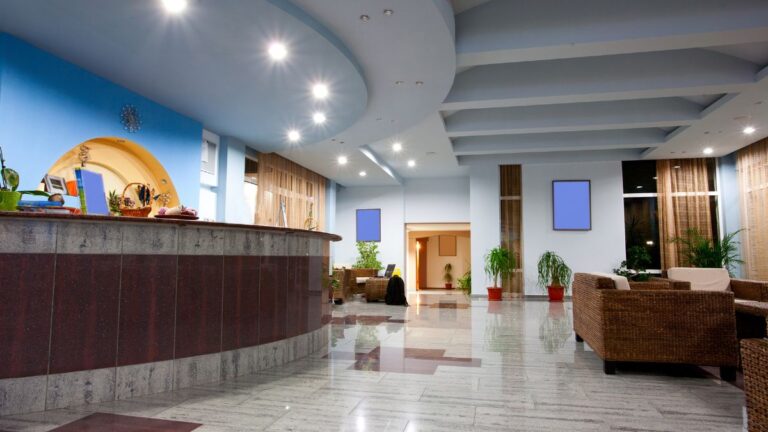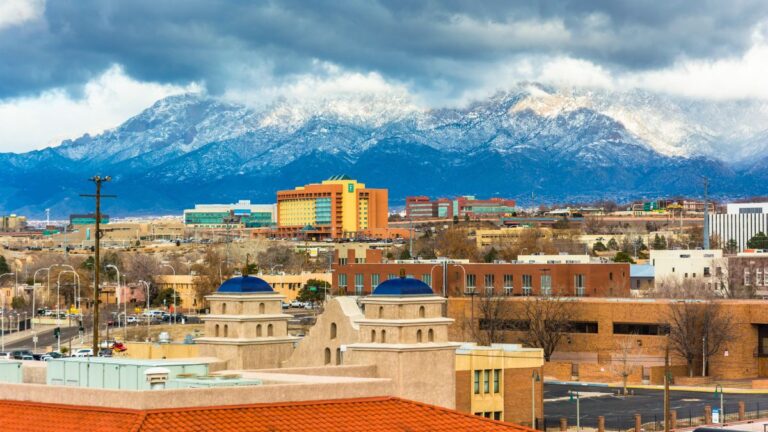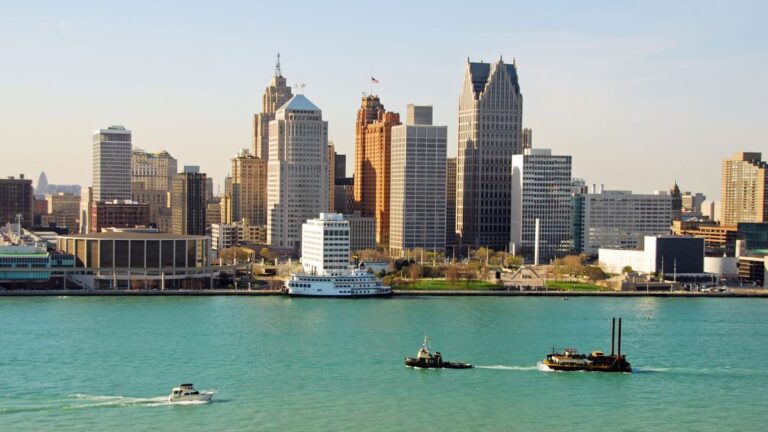How Long Can You Stay At A Hotel? Is There A Limit?

As participants in Amazon Associates and other programs, we earn from qualifying purchases. This comes at no additional cost to you. For more details, see our Affiliate Disclosure.
Have you ever wondered how long you can luxuriate in a hotel room, watching movies, ordering room service, and enjoying the daily maid service? While hotels can be a haven away from home, the question arises, is there a time limit to how long you can actually stay? Let’s dive into the nitty-gritty of hotel stays and the rules surrounding them.
Understanding Hotel Policies: From Short-Term to Long-Term Stays
Every hotel, whether it’s a boutique establishment in a quiet town or a grand luxury resort in the heart of a bustling city, operates based on a set of policies designed to cater to a variety of guest needs. These policies not only ensure smooth operations but also define the relationship between the hotel and its guests. Here’s a closer look at how these policies influence the duration of a guest’s stay:
Short-Term Stays
These are the typical stays most travelers are familiar with, usually ranging from one night to a week.
Hotels are primarily structured to accommodate guests for these shorter durations, ensuring they have a comfortable experience filled with the amenities and services typical of a brief getaway or business trip.
Medium-Term Stays
Ranging from a week to a month, medium-term stays are less common but not unusual. They might be preferred by business travelers on extended assignments, families on a long vacation, or individuals relocating and needing a temporary place to stay.
During such stays, guests might be offered special rates or deals, especially if their stay fills a room that would otherwise go unoccupied.
Long-Term Stays
Lasting a month or more, long-term stays can tread a gray area in many hotel policies. Hotels might have designated rooms or floors for such guests, and these rooms may be equipped differently to cater to the extended nature of the stay, often resembling an apartment setup with a small kitchenette.
Some hotels might not be equipped for long-term guests, while others, especially extended stay hotels, thrive on this business model.
Factors Influencing Hotel Policies
- Operational Needs: Regular guest turnover is essential for hotels to maintain, clean, and refurbish rooms. Extended stays can sometimes disrupt this routine.
- Financial Considerations: Longer stays might bring steady income, but they often come with discounted rates, impacting the hotel’s profit margins.
- Legal Aspects: In some regions, guests who stay beyond a certain period can attain rights similar to a tenant, making eviction, if necessary, a complicated process.
- Guest Experience: Ensuring that both short-term and long-term guests have a pleasant experience can be a balancing act. Hotels need to maintain a harmonious environment for all.
In conclusion, while most hotels are equipped and inclined to cater to short-term guests, the policies surrounding medium to long-term stays can vary widely based on the hotel’s model, location, and operational preferences. It’s always recommended to check directly with the establishment and understand their stance on extended stays before making any long-term arrangements.
How Long Can You Stay At A Hotel?
The direct answer is that you can stay at a hotel for as long as you are willing to pay and as long as you adhere to the hotel’s policies. However, the specifics often vary based on individual hotel rules and regional regulations.
In general, hotels are set up for short-term stays, typically ranging from one night to a week, though they don’t necessarily set a maximum limit on stay duration.
There are some caveats to consider. For stays that stretch into weeks or even months, some hotels may require guests to occasionally check out and then check back in. This is not just a quirk; it’s often rooted in legal reasons.
In many places, if a guest stays in a hotel for 30 days or more, they can be considered a tenant, which gives them certain legal rights and makes eviction more complicated for the hotel.
Moreover, extended stays might offer discounts or different rates which are often more economical per day, but they could come with limited housekeeping or other services.
Legal Implications of Prolonged Hotel Stays
Legal implications can arise when guests extend their stays in hotels beyond typical short-term periods. These implications, which can vary by jurisdiction, revolve around the rights and responsibilities of both the guest and the hotel.
Tenant Rights: In many places, if a guest stays in a hotel for a prolonged period (often 30 days or more), they might acquire rights akin to those of a tenant. This distinction means that the hotel cannot simply ask the guest to leave or lock them out. Instead, they may have to go through a formal eviction process, similar to evicting someone from an apartment or other rental property. This process can be time-consuming and costly for the hotel.
Rate Changes and Contracts: Extended stays may sometimes necessitate a different rate or contractual agreement. While hotels might offer reduced rates for longer stays, they could also institute weekly or monthly contracts, which might be separate from standard nightly rates. This can sometimes blur the line between a standard hotel stay and a lease agreement.
Local Taxes and Regulations: Some jurisdictions have taxes specifically for hotel stays. For example, a city might levy a nightly hotel tax that’s meant for short-term guests. If a guest becomes more like a tenant than a transient visitor, the applicability of these taxes can come into question. Additionally, some regions may have laws or regulations specifically addressing long-term hotel stays, setting out rights, obligations, or tax implications.
Safety and Health Regulations: Hotels are designed with certain safety and health regulations in mind, anticipating transient guests. When guests stay for extended periods, issues such as waste management, wear and tear on facilities, and general upkeep might present challenges that aren’t typically encountered with shorter-term guests.
Liability Issues: With prolonged stays, there might be increased concerns about liability. For example, if a long-term guest were to get injured on the property, the question of the hotel’s responsibility could become more complex, especially if the guest has made any unauthorized modifications or changes to the room during their stay.
While hotels offer flexibility and convenience for a range of stay durations, prolonged residency can bring about legal complexities. It’s always prudent for both guests and hotel operators to be aware of the potential implications and to consult local regulations and legal advice when necessary.
How Hotel Rates Change Over Longer Periods
Hotel rates can fluctuate considerably based on a multitude of factors. One of the significant variables affecting pricing is the length of a guest’s stay. Here’s a closer look at how hotel rates might change over longer periods:
Economies of Scale: Just like buying in bulk can often get you a discount, staying in a hotel for an extended period can sometimes secure a reduced nightly rate. This is because the hotel benefits from the certainty of a filled room, reduced administrative work, and minimized turnover costs, such as cleaning and preparing the room for new guests.
Negotiation Leverage: Longer stays provide guests with more bargaining power. If someone intends to stay for several weeks or months, they might have the leverage to negotiate amenities, complimentary services, or even reduced rates, especially if it’s during the hotel’s off-peak season.
Dynamic Pricing: Hotels use dynamic pricing models that adjust room rates in real-time based on demand, seasonality, local events, and other factors. While a guest might secure a favorable rate for a short stay during a low-demand period, that rate might not be sustainable for longer periods if demand increases, such as during a major event or high tourist season.
Special Long-Term Rates: Many hotels, especially those that cater to business travelers or extended stay establishments, offer special weekly or monthly rates. These rates are generally lower on a per-day basis than the standard nightly rate. They might also come with different terms and conditions, such as limited housekeeping services.
Potential for Added Costs: While the per-night rate might decrease, extended stays can introduce other costs. For instance, some hotels might charge for utilities separately for long-term guests or require additional fees for amenities like laundry or kitchenette usage.
Loyalty Programs and Discounts: Regular guests or those enrolled in a hotel’s loyalty program might earn points or qualify for discounts during extended stays. Over time, this can lead to significant savings, upgrades, or other perks.
While longer hotel stays often present opportunities for reduced rates and other benefits, it’s essential to consider the entire cost spectrum and any changing dynamics during the stay.
The Impact of Extended Stays on Hotel Operations
Hotels are primarily designed for short-term accommodations, with operations streamlined to cater to guests checking in and out frequently. When guests stay for more extended periods, it can ease some operational challenges but also introduce new ones.
On the positive side, having long-term guests means more consistent occupancy rates, reducing the unpredictability of nightly bookings. This consistency can help with revenue forecasts, reduce administrative work, and decrease turnover tasks such as daily cleaning and room preparation.
However, extended stays can also present challenges. Hotel amenities, like daily housekeeping, breakfast services, and toiletries replenishment, are usually structured for short stays.
With guests residing for longer durations, the demand on these services might shift, possibly straining resources. For instance, long-term guests might decline daily housekeeping, leading to less frequent but more intensive cleaning sessions.
Furthermore, the wear and tear on rooms from prolonged usage can lead to more frequent maintenance requirements. It’s also crucial for hotels to strike a balance to ensure they don’t alienate short-term guests while catering to the needs of those staying longer.
This balance ensures that the hotel maintains its appeal to a broader range of potential customers.
Benefits of Extended Hotel Stays for Travelers
Extended hotel stays can offer a range of benefits for travelers, providing more than just a prolonged roof over one’s head. Here’s a breakdown of the advantages such stays can bring:
Consistency and Comfort: Over longer trips, frequently changing accommodations can be exhausting. Extended stays in one hotel provide a consistent environment where travelers can settle in, unpack, and create a temporary “home away from home.” This familiarity can significantly enhance comfort and reduce the stress of travel.
Cost Savings: Many hotels offer discounted rates for guests who book for longer durations. These reduced rates can lead to substantial savings over the course of several weeks or months. Moreover, these rates often come with bundled services, such as complimentary laundry or free parking, which can further reduce travel expenses.
Convenient Amenities: Extended stay hotels, in particular, are designed with the long-term traveler in mind. They often come equipped with kitchenettes, allowing guests to cook their meals, which can be both a cost-saving measure and a way to enjoy home-cooked food. Additionally, these establishments typically provide laundry facilities and sometimes even grocery shopping services, adding layers of convenience.
Building Relationships: Staying in one place for an extended period allows travelers to build rapport with hotel staff. This relationship can lead to personalized services, insider tips about the local area, and sometimes even additional perks or upgrades.
Reduced Relocation Hassles: Packing, checking out, traveling to a new location, checking in, and unpacking can be a time-consuming process. By opting for extended stays, travelers can minimize these repetitive tasks and spend more time exploring or relaxing.
Sense of Community: Extended stays can lead to interactions with other long-term guests. Over time, this can foster a sense of community, where travelers share experiences, tips, or even organize group activities or excursions.
While the traditional hotel experience is designed for short-term convenience and luxury, extended stays offer a blend of comfort, cost-efficiency, and community, making them a preferred choice for many travelers on prolonged trips.
Potential Drawbacks of Staying Too Long
While there are advantages to extended stays, there are also potential drawbacks to consider when residing in one place for a prolonged period, whether it’s a hotel, a rented apartment, or even staying with friends or family:
Monotony: One of the joys of traveling is experiencing new environments. Staying in one place for too long might lead to a sense of monotony or feeling “stuck,” especially if the surrounding area doesn’t offer varied activities or sights.
Cost Implications: Even with discounted rates for longer stays, the cumulative cost of living in a hotel can be substantial. This expenditure might surpass the cost of short-term rentals or serviced apartments in the same region.
Limited Space: Hotels, especially standard rooms, are designed for short-term comfort and might lack the space and facilities (like a full kitchen) desired for longer-term living.
Social Isolation: Extended stays, particularly in hotels, can sometimes lead to feelings of isolation. Unlike living in a community or neighborhood, the transient nature of hotels means neighbors change frequently, making it harder to form lasting connections.
Over-reliance on External Services: Extended hotel living might lead to over-reliance on services like eating out or using hotel laundry, which can be more expensive in the long run compared to self-catering options.
Wear and Tear on Personal Items: Constantly using the same travel items, clothes, and equipment without the break they’d get in a usual home setting can lead to faster wear and tear.
Legal and Contractual Issues: In some places, staying in a hotel beyond a certain period might bring up legal concerns. For instance, after 30 days, you might be considered a tenant in some jurisdictions, changing the dynamics of your relationship with the hotel.
Lack of Personalization: Unlike a personal home or long-term rental, hotel rooms often lack personal touches. Over time, the generic nature of these spaces might feel impersonal or lacking in warmth.
Health Concerns: Continuously living out of a suitcase and relying on hotel or restaurant meals might not be the healthiest lifestyle. Lack of regular home-cooked meals or routines can impact physical and mental well-being.
While extended stays offer convenience and certain benefits, they come with their set of challenges. It’s essential to weigh the pros and cons based on personal preferences, needs, and the nature of the trip when considering long-term accommodation options.
Tips for Negotiating Long-Term Rates
Securing a favorable rate for an extended hotel stay often requires a blend of research, communication, and negotiation skills. While hotels are open to providing discounts for longer bookings, you need to approach the negotiation strategically to ensure the best deal.
- Research Comparable Rates: Before initiating a negotiation, research other hotels’ rates in the area for similar long-term stays. Being informed about the average costs will strengthen your negotiating position.
- Book Directly: Avoid third-party booking sites when planning extended stays. Booking directly with the hotel often gives more room for negotiation and can sometimes lead to better deals.
- Leverage Loyalty: If you’re a member of a hotel’s loyalty program, mention it. Hotels are often more willing to offer discounts or perks to loyal customers to maintain their business.
- Be Flexible with Dates: If your dates are adjustable, inquire about off-peak times or periods when the hotel might have lower occupancy. Rates might be more negotiable during these times.
- Ask About Bundled Services: Instead of focusing solely on the room rate, ask if the hotel can bundle additional services, like free parking, breakfast, or laundry, into the negotiated rate.
- Commit to a Minimum Stay: Hotels are more likely to offer discounts if you can commit to a specific minimum length of stay. Guaranteeing them consistent occupancy for a set period can be a strong negotiating point.
- Be Polite and Professional: A positive attitude can go a long way. Being courteous and understanding during negotiations can create a favorable impression and make the hotel staff more inclined to work with you.
By employing these tactics and being prepared, you can secure better rates and terms for your extended hotel stays, making your trip more cost-effective and enjoyable.






